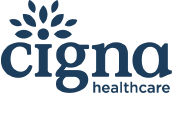
Speech & Language Therapy
Speech and language therapy services help children and adults who have difficulty producing speech sounds, can’t articulate specific sounds, stutter, or have a voice disorder. Language disorders are characterized by difficulty communicating meaning and/or understanding thoughts, ideas, and feelings being communicated.
Montclair Speech Therapy successfully treats apraxia, dysarthria, aphasia, language-based learning disabilities, and selective mutism.

What is Apraxia of Speech?
Individuals living with apraxia know what they want to say but have difficulty moving their lips, jaw, and tongue into the correct positions required to make speech sounds. Apraxia occurs when messages from the brain to the mouth are disrupted. Treatment includes PROMPT techniques, speech sound repetition as well as mouth movement, and pacing exercises.

What are Symptoms of Dysarthria?
Characterized by slurred or slow speech, dysarthria results from a lack of coordination, weakness, and/or paralysis of muscles that produce speech sounds. Treatment plans must take into consideration the cause and severity of the disorder, establishing goals and strategies that will improve communication abilities

What is Aphasia?
Damage that impacts language centers in the brain can impair a person’s ability to speak, write and understand verbal and written language. Individuals experiencing Aphasia often report “tip of the tongue” phenomenon where they know what they want to say but have difficulty getting the words out. Treatment focuses on rehabilitation and recovery of language skills as well as developing additional methods of communication.

Can Language-Based Learning Disabilities be Overcome by Treatment?
When treated early, learning difficulties in reading, writing and spelling can be addressed effectively with teachers, parents, and caregivers. Treatment focuses on activities that support the development of missing skills, enabling the student to develop strategies for combining sounds, comprehension, and executive function.

Can Selective Mutism be Treated?
Selective Mutism is when an individual does not speak in specific social situations, interfering with school, work, or social communication. Treatment plans include a behavioral approach that builds confidence, reduces anxiety, and addresses any speech or language issues that may be a hindrance.
Request a Consultation

Disorders in Children
Speech Sound Disorders
When speech sounds are substituted, modified or omitted past a certain age, therapy can facilitate clear articulation of individual sounds and reduce errors in the production of sound patterns. Developmental disorders, genetic syndromes, hearing loss and neurological disorders can contribute to speech sound disorders.
Orofacial Myofunctional Disorders
The most commonly identified disorder in this category is the tongue thrust, which involves the tongue moving forward incorrectly during speech and/or swallowing. This can cause the misalignment of teeth and contribute to distorted speech and articulation issues.
Start early with children
The Earlier, The Better
An early start to speech and language therapy can enhance your child’s ability to learn new skills and facilitate functional communication. Early intervention, beginning from birth to 3 years has shown to help children with their ability to use and combine gestures, signs, and words to communicate and actively learn within their everyday environments.
It’s Never Too Late to Learn
Initiating therapy for toddlers, preschool, and school-aged children can help support and expand their language. Our therapists are educated and skilled in providing services to promote skills related to early learning, phonological awareness, literacy, and social communication in order to help your child excel in the academic setting, within peer interactions, and at home.
Thorough Evaluation
A therapist will perform a thorough evaluation to determine your child’s skills and needs. We design an individualized treatment program that builds on your child’s strengths; aligns with family beliefs and personal goals; and coordinates with other services your child is receiving to maximize treatment outcomes.
Our Approach
We use a wide variety of techniques—tailoring each session to the needs of the individual child and family. We achieve results using a multi-dimensional, child-centered approach that includes play, facilitative language environments, and family training —to help children develop the skills needed to interact with others in everyday contexts.
Specialized Training
PROMPT Trained
A language-based technique that provides tactile cues to the lips, tongue and jaw to help a patient feel the correct placement for each sound in each word.
PROMPT therapy can help a wide range of patients with communication disorders, including those with motor speech issues, articulation difficulties, and the non-verbal. From Aphasia to pervasive developmental disorders and acquired brain injuries, an evaluation at Montclair Speech Therapy can confirm if PROMPT therapy would be a beneficial addition to your treatment plan.
Talk Tools Level 3 Trained
Oral Placement Therapy is a speech therapy that utilizes a combination of auditory, visual, and tactile stimulation to the mouth to improve speech clarity.
Sources
Insurances We Accept






